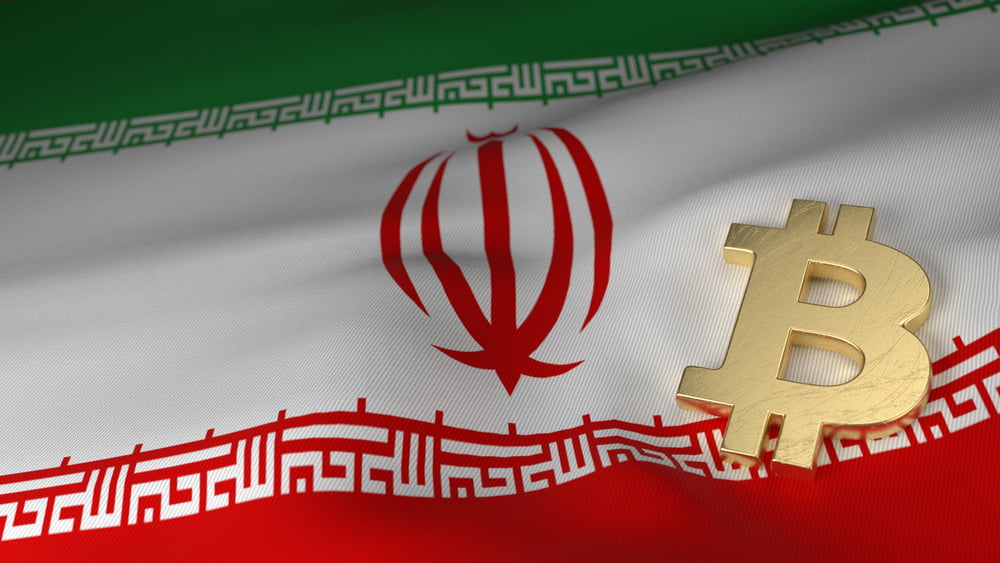Iran, which was heavily affected by the sanctions imposed by the US on the country and its businesses in January, has banned the only alternative payment method that local businesses and individuals could use to bring money in and out of the nation.
Why Did Iran Ban Cryptocurrency?
On April 23, the central bank of Iran effectively banned local banks and financial institutions from dealing with cryptocurrency businesses.
“Banks and credit institutions and currency exchanges should avoid any sale or purchase of these currencies or taking any action to promote them,” Iran’s state-run IRNA news agency reported.
According to Radio Free Europe/Radio Liberty (REFRL), the official circular of the Central Bank of the Islamic Republic of Iran further emphasized that cryptocurrencies have the potential to be used by criminals and terrorists. The circular read:
“All cryptocurrencies have the capacity to be turned into a means for money-laundering and financing terrorism[,] and in general can be turned into a means [of] transferring criminals’ money.”
Several local media outlets reported that Iran’s decision was likely triggered by the continuing decline of the rial, the country’s national currency. The central bank may fear that the value of the country’s currency could decline even further if citizens and residents began using alternative payment methods instead of the rial.
In an interview with The New York Times, university professor Mohsen Yekta stated that Iranian merchants, business owners, and professionals can no longer send money to family members and suppliers outside of the country due to the government’s intensifying crackdown on money changers and black markets.
According to the Times, Iran’s government sent riot police to bazaars and black markets on April 6 and arrested several operators of money changers. Controversially, the government announced its decision to execute some of those money changers in order to set an example across the country. The government subsequently announced its controversial decision to execute some of those money changers in order to set an example across the country.
The ban on cryptocurrencies like Bitcoin and Ethereum is part of the government’s ongoing crackdown on alternative currencies and payment methods, and the government is trying to minimize the usage of the US dollar within the country as well, as it remains the country’s most widely utilized currency as of now.
Professor Yekta said that the decline of money changers and black markets has made it virtually impossible for him to send money to his daughter in France, a university student.
“Every month I send some money to my daughter in Paris. I need foreign exchange to help her out. I don’t know what to do,” he said.
Apart from the US dollar, the only alternative that is available to the people of Iran is cryptocurrencies like Bitcoin and Ethereum. Without money changers, it is extremely difficult to send US dollars from Iran to other countries, due to the presence of strict border controls at airports. The only form of digital money with high liquidity, fungibility, and transportability that is accessible by the Iranian people is cryptocurrency.
The motivation behind Iran’s decision to ban cryptocurrency is quite obvious; it is a desperate attempt to stop the devaluation of the rial. The national currency has already hit an all-time low, and at the present rate, it is liable to lose most of its value and suffer a similar fate as the Venezuelan bolivar.
Hope For Cryptocurrency and Blockchain
At this juncture, based on the negative stance of the Iranian government towards cryptocurrency in general, it is unlikely that the government will provide practical policies for cryptocurrency investors and businesses in the short term. However, it is possible that the Iranian government will reverse its ban, as the government of Pakistan did this month.
On April 8, the central bank and government of Pakistan issued a ban on local banks and financial institutions dealing with cryptocurrency businesses, and released a circular that was nearly identical to that of the Iranian government.
The Pakistani government emphasized:
- The fact that virtual currencies are highly volatile and unstable, and that their prices are primarily based on speculation
- The failure and closure of virtual currency exchanges and businesses for any reason, such as action by law enforcement agencies
- The number of security compromises of virtual currency exchanges and wallets worldwide in which large amount of funds have been lost
Less than two weeks after the circular was released, the Pakistani government stated that it had never banned cryptocurrencies, but rather prohibited banks from dealing with cryptocurrency businesses. It said that while the general public is advised that cryptocurrencies are not recognized as legal tender, they are not banned. The central bank stated:
[The] General Public is advised that Virtual Currencies/Coins/Tokens (like Bitcoin, Litecoin, Pakcoin, OneCoin, DasCoin, Pay Diamond etc.) are neither recognized as a Legal Tender nor has SBP authorized or licensed any individual or entity for the issuance, sale, purchase, exchange or investment in any such Virtual Currencies/Coins/Tokens[.]
The current state of cryptocurrencies in Iran is almost identical to that in Pakistan in that the government has not explicitly banned the use of cryptocurrencies as a method of payment and investment.
Iran’s decision to ban cryptocurrencies was shortsighted, given that several countries which had previously been struggling with economic development, including Malta, saw large increases in their GDPs after embracing cryptocurrencies and businesses operating in the global cryptocurrency market.
Considering the financial turmoil that is ongoing in Iran and the country’s struggling economy, it is likely that the government will open its economy to cryptocurrency and blockchain businesses, especially if even more new sanctions are imposed.

